Top 10 budget tips
 0 Comment(s)
0 Comment(s) Print
Print E-mail
Streetwise Guide Beijing, June 2, 2008
E-mail
Streetwise Guide Beijing, June 2, 2008
There are plenty of ways while traveling to save money and time, and still have a good time. Planning your trip before leaving home, learning how to get around, what to see and where to eat… we'll help you get the most out of your time and budget in Beijing. Here we give you a "Top 10" list of things to keep in mind. Many of the money-saving services are not widely known outside the Chinese community and may not provide English service. If so, try getting a Chinese friend to help—people are always keen to practice their English.
1. Free admission day
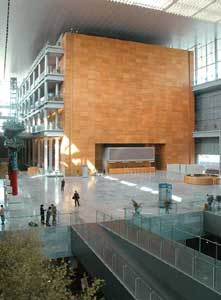
A fantastic budget saving trick is to take advantage of the "free admission" policy at the city's 13 museums, which award first 200 visitors free entry on every Wednesday. The 13 museum are: Capital Museum (首都博物館, which has 4000 visitors free entry if reservation was made 3 days in advance; special exhibition excepted.), Xubeihong Museum (徐悲鴻紀念館), Ancient Bell Museum (大鐘寺古鐘博物館), Beijing Art Museum (北京藝術(shù)博物館), Cultural Exchange Museum (文博交流館), Beijing Ancient Coins Museum (北京古代錢幣展覽館,86-10-62018073), Beijing Art Museum of Stone Carvings (北京石刻藝術(shù)博物館), Lao She Memorial Hall(老舍紀念館, 86-10-65142612), Zhengyangmen Gate (正陽門, 86-10-65229384), Dajue Temple (大覺寺), White Dagoba Temple(白塔寺), Confucius Temple and Guozhijian Museum (孔廟和國子監(jiān)) and Beijing Ancient Architecture Museum (北京古代建筑博物館, 86-10-63045608).
On May 18, or the International Museum Day, museum-goers also enjoy free entrance. For a complete list of participating museums, please log on http://english.bjww.gov.cn/zwgk/jgsz_zsdw.asp.
2. Pass it on! Entrance tickets and Museum Pass
Many sights offer a choice of "access-all-areas" or "single-zone" tickets. Decide in advance which bits you do and don't want to see and buy the appropriate ticket at the entrance (sometimes, it's much pricier to buy individual ones on the way round).
You can also get student discounts at many venues on presentation of a student card. Not all attractions offer this discount, but it's always worth asking!
Beijing Museum Pass (博物館通票): This wondrous little pass is a godsend for Beijing visitors. For RMB 80, up to three adults can enjoy discounts (half price, three for one, etc. according to the attraction) to nearly all the city's main museums as well as several temples and cultural sights. This can add up to very big savings. However, a limited number of these booklets are available between late December and late January each year. They are valid through the entire calendar year and can be bought at main branches of China Post Offices or order them by calling 86-10-64177845 (in English), 86-10-622131256 (in Chinese); or from http://www.piao.com.cn (in English), www.bowuguan.bj.cn (in Chinese). But stocks run out quickly, so if you know you are coming to Beijing later in the year, perhaps it's worth arranging for a friend or colleague here to buy one for you.
3. Welcome to Beijing! Upon arrival
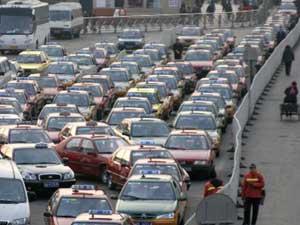
Don't make the mistake of running straight for the
first airport taxi you see; it is a fair distance and the meter won't be a pretty sight at the end. The airport shuttle bus or the subway to downtown will save you a hefty sum. Your hotel may arrange airport pickups, but if not, ask them which bus to take and where to get off. Some bus drivers speak simple English, so be sure to have the name of your hotel written in Chinese and the driver tell you where to alight. It's a great introduction to the city. Trust us!
4 Getting orientated
Park your bags and go check out the area around your hotel. Seek out bus lines in the near vicinity, and you may just be able to get to the sites without taking a taxi.
5. All change! Using public transport
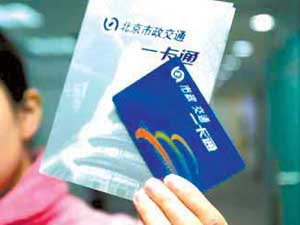 Public transport in Beijing seems a lot more stressful than it actually is, and is a great way to save money. Bus and subway routes are clear and logical and we offer bus and/or subway route information to all the sights listed. For a bus map, see http://91dzs.com/e-logo/e-map.htm(in English).
Public transport in Beijing seems a lot more stressful than it actually is, and is a great way to save money. Bus and subway routes are clear and logical and we offer bus and/or subway route information to all the sights listed. For a bus map, see http://91dzs.com/e-logo/e-map.htm(in English).A public transport "Superpass" (一卡通yikatong) may help save your money and time buying individual tickets. Three types of prepaid superpasses are now available:
Adults' card: For buses numbered from 1 to 499, there is a flat rate fare of RMB 0.4; and for these numbered from 601 to 899, 40% of the normal ticket prices. For those numbered from 900, 80% of the normal ticket prices. Subways, no discount. No limit on duration.
Students' card: For buses numbered from 1 to 499, there is a flat rate fare of RMB 0.2; and for these numbered from 601 to 899, 20% of the normal ticket prices. For those numbered from 900, 80% of the normal ticket prices. Subways, no discount. No limit on duration.
Limited duration bus cards are very handy for visitors: a 3-day card (maximum 18 rides) costs RMB 10; a 7-day card (maximum 42 rides) costs RMB 20; and a 15-day card (maximum 90 rides) cost RMB 40.
You can buy a superpass at China Post Offices, subway stations or CITIC Bank branches.
There is a refundable RMB 20 deposit per card. To get back your deposit , visit one of the following places: Bus 328 terminal at Andingmen Xi (安定門西), Bus 15 terminal at Beijing Zoo (動物園樞紐站), and Bus 335 terminal at Fuchengmen (阜成門).
6. When in Rome! Eating outEat where the locals eat. When you're in Beijing, Chinese food is always the cheapest. Look for Chengdu Snack Food (成都小吃) restaurants which can be seen everywhere in town. They serve cheap and cheerful dumplings, noodles and gaifan (蓋飯 rice topped with dishes such as Kung-pow chicken 宮保雞丁, approx. RMB 10/plate). Street vwndors selling all kinds of snacks like Yangrouchuan (羊肉串 lamb kebabs) and jianbing (煎餅 pancake) are extremely convenient when you're on the move.
7. Low-cost or free activities
One of the best ways to see a country is through the eyes of the local people. Night-time dancing in many public squares is a raucous and fun activity that foreigners can get involved in. Alternatively, a serene afternoon of kite-flying at Tian'anmen will thrust you into the middle of local life (and a kite only costs a few RMB!). If you're lucky enough to be around during the Spring Festival (Chinese New Year), you shouldn't miss the traditional temple fair where an eclectic range of foods is available.
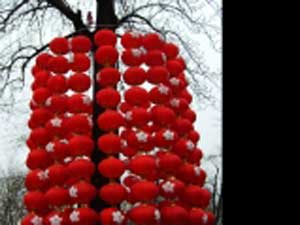
8. Shop' til you drop
A lot of "touristy items" are sold throughout the city. You do not have to buy a souvenir of a tourist sight at the place itself. In Chinese markets it is often the late bird that catches the best worm. Vendors offer bigger discounts at the end of the day, so leave shopping until last (then you won't need to lug it around all day either!)
Don't go with the flow and shop at markets constantly mentioned in other travel guides, such as Pearl Market or Silk Street. Their prices tend to be higher than others as they've become the most famous shopping spots among foreigners. Look for some new spots: for cheap special souvenirs go to Tianyi Market; and stop at Tianzhaotian Wholesale Market for women's accessories at wholesale prices. Spend at least two hours at the wholesale market around Beijing Zoo for dirt-cheap wholesale clothes. For a bit of everything, Golden Five-star Wholesale Market should be your ideal stop.
Bargaining is expected so make sure to haggle the price down or you'll be paying over the odds.
Bargain tips:
1). Bring along a sense of adventure and fun when shopping and be prepared to bargain.
2). Start by offering no more than 40% of the vendor's first price and smile through the process.
3). Once you’ve reached your limit, stand firm, but polite. Call the seller "pengyou" (friend).
4). If the vendor won't accept your price, walk away. They’ll often call you back. If not, their last price is really their last price, and if you want to buy the item (at least from then) that's the price you'll have to pay.
5). When buying multiple items, negotiate the single item price first, and then insist on a lower price for multiple purchases.
6). Don't feel sorry for the seller; there's no way they are losing money on a deal no matter how cutthroat a negotiator you are. At the end of the transaction, compliment them on their good selling and be prepared to be showered with praise for your excellent bargaining.
9. Let your hair down: relaxing in Beijing
After a long day sightseeing, what better way to unwind than with a massage? Beijing's massages are first rate and extremely reasonable: for RMB 50 you can enjoy an hour-long body or foot massage. Alternatively, a xitou (洗頭 head wash) is a vigorous shampoo and scalp, neck and shoulder massage. Almost all hair salons offer this for around RMB 10-15 (they may also throw in a hair cut too!).
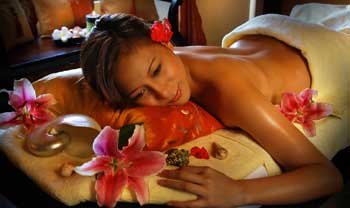
10. Bicycle and walking tours
Beijing is huge—we can’t repeat that often enough. That said, it is surprisingly easy to visit certain areas by pedal-power alone. In "Historical Central" particularly, many of the main attractions including the Forbidden City, Tian'anmen Square, Beihai Park, Houhai and the Bell and Drum Towers are all within easy cycling distance from each other. And an easy stroll links the Lama Temple and Confucious Temple. Cycling or walking will save you money; but more than that, they are really enjoyable ways of truly experiencing the city.